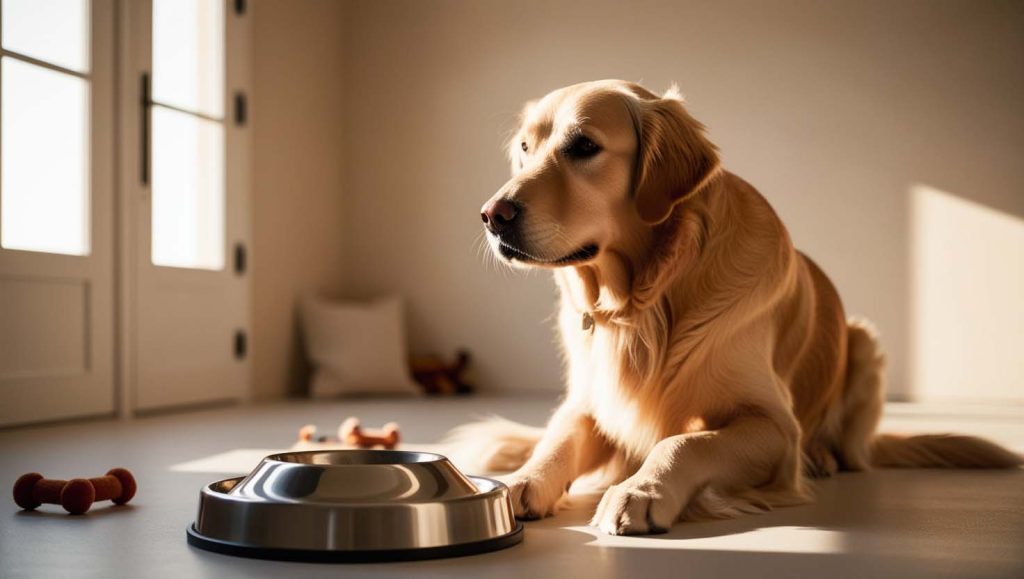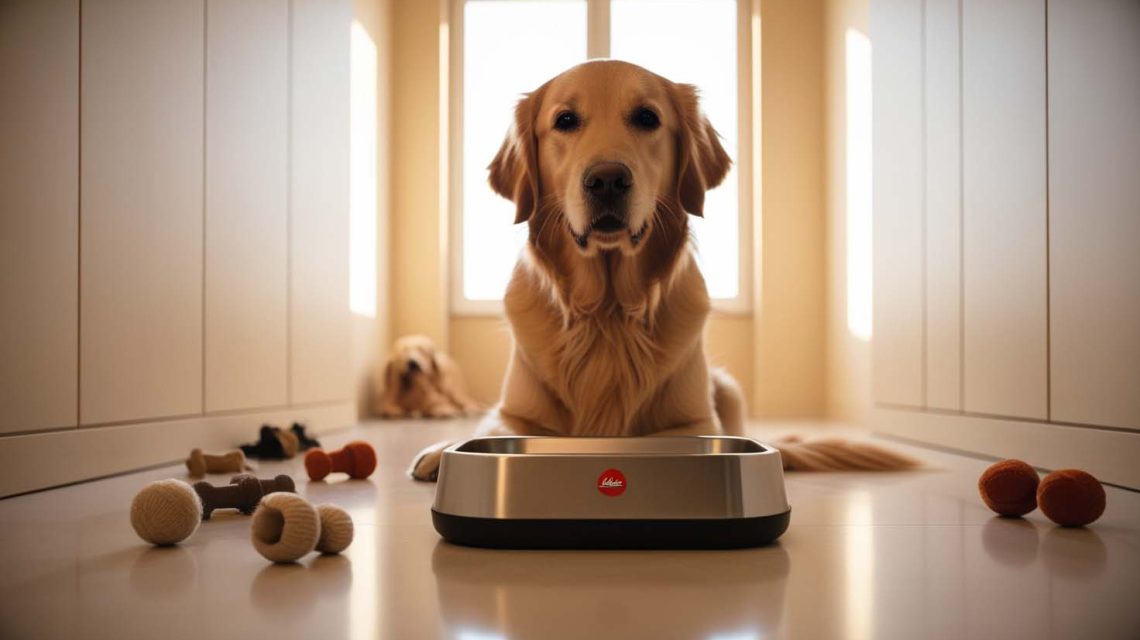Golden Retriever Feeding Guide : Essential Tips for a Healthy Diet
Golden Retrievers are known for their friendly nature and boundless energy. To keep them healthy and happy, proper nutrition is crucial. Feeding your Golden Retriever the right way ensures they maintain their energy, avoid health problems, and live a long, vibrant life. This Golden Retriever feeding guide will help you tailor their diet to suit their needs, from puppyhood to adulthood and beyond.
Why Following a Feeding Guide Is Important
Nutrition plays a critical role in your Golden Retriever’s overall well-being. A well-balanced diet supports their growth, strengthens their immune system, and helps prevent issues like obesity and joint problems. By using this Golden Retriever feeding guide, you can avoid common feeding mistakes and provide the best care for your furry friend.
Golden Retriever Feeding Guide by Life Stage
Feeding Golden Retriever Puppies
Puppies grow rapidly, requiring more nutrients and frequent meals.
| Age (months) | Meals per Day | Portion Size per Meal (cups) |
|---|---|---|
| 2–3 | 4 | 0.5–0.75 |
| 4–5 | 3 | 0.75–1.0 |
| 6–12 | 2–3 | 1.0–1.5 |
Tips:
- Choose high-quality puppy food designed for large breeds.
- Avoid overfeeding to prevent rapid weight gain, which can lead to joint issues.
Feeding Adult Golden Retrievers
Once your dog reaches one year old, their nutritional needs change.
| Weight (lbs) | Activity Level | Meals per Day | Portion Size per Meal (cups) |
|---|---|---|---|
| 55–65 | Moderate | 2 | 2.0–2.5 |
| 65–75 | High | 2 | 2.5–3.0 |
Tips:
- Use large-breed adult dog food for optimal health.
- Monitor their weight and adjust portions if necessary.
Feeding Senior Golden Retrievers
Golden Retrievers are considered seniors at around seven years old. Their metabolism slows, so they need fewer calories.
| Weight (lbs) | Meals per Day | Portion Size per Meal (cups) |
|---|---|---|
| 55–65 | 2 | 1.5–2.0 |
| 65–75 | 2 | 2.0–2.5 |
Tips:
- Switch to senior dog food with joint-supporting nutrients like glucosamine.
- Ensure they stay active to prevent obesity.

Factors That Influence Your Golden Retriever’s Diet
Activity Level
Active Golden Retrievers require more calories than sedentary ones. A working or highly active dog might need an extra half cup per meal.
Size and Weight
Golden Retrievers come in various sizes, so their portions should reflect their weight. Regular weigh-ins ensure they’re maintaining a healthy weight.
Health Conditions
Certain health issues, like allergies or joint problems, may require a specialized diet. Consult your vet to tailor their food accordingly.
Common Feeding Mistakes to Avoid
Overfeeding
Golden Retrievers love food and may overeat if given the chance. Overfeeding can lead to obesity, which increases the risk of diabetes and arthritis.
Irregular Feeding Schedule
Stick to a consistent schedule. Feeding your dog at the same times each day helps regulate digestion and prevents begging.
Giving Too Many Treats
Treats should only make up 10% of your dog’s daily caloric intake. Use them sparingly, especially during training sessions.
Transitioning Between Food Types
Switching to New Food
When transitioning to a new food, do it gradually over 7–10 days:
- Start with 75% old food and 25% new food.
- Gradually increase the new food while decreasing the old food.
- Ensure your dog adjusts well before making a full switch.
From Puppy to Adult Food
Switch to adult food at 12–15 months. Monitor for any digestive changes and consult your vet if concerns arise.
Introducing Senior Dog Food
Senior dogs need lower-calorie food with added joint support. Begin this transition around seven years old or earlier if advised by your vet.
FAQs About Golden Retriever Feeding Guide
1. How often should I feed my Golden Retriever?
Puppies need 3–4 meals daily, while adults can thrive on 2 meals per day. Seniors should also eat twice daily to maintain energy levels.
2. What type of food is best for Golden Retrievers?
High-quality dry kibble designed for large breeds is ideal. Wet food or a raw diet can also work, depending on your dog’s preferences and health.
3. Can I feed my Golden Retriever human food?
Some human foods, like chicken or carrots, are safe in moderation. Avoid harmful foods like chocolate, onions, and grapes.
4. How do I know if my Golden Retriever is overweight?
Check for a visible waistline and feel their ribs. If you can’t feel the ribs easily, they may be overweight.
5. How much water should my Golden Retriever drink?
Ensure access to fresh water at all times. An adult Golden Retriever typically drinks 1–2 ounces of water per pound of body weight daily.
6. Can I feed my Golden Retriever raw food?
Raw diets can work for some dogs, but they require careful planning to ensure balanced nutrition. Consult your vet before switching.


